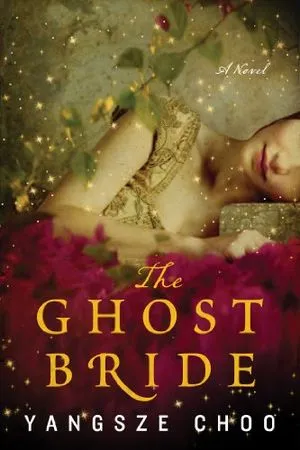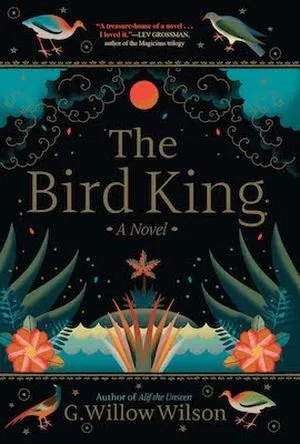
4 Stories To Adapt After THE HAUNTING OF BLY MANOR
I will always lean toward a mesmerizing ghost story. Provocative and reflective, emotional and intimate. And the eerier, the better (ghosts kind of fit that bill, of course). So when I finally sat down to watch The Haunting of Bly Manor (the follow-up to The Haunting of Hill House on Netflix), I realized quickly that this was a ghost story by trappings only, and the heart of it beat a rhythmic, unbearable ache. What kind of story captures such an eldritch mood and passionate emotions? Gothic literature of course, with its macabre settings and supernatural elements. It’s no wonder the show creators chose to adapt the iconic Gothic tale by Henry James, The Turn of the Screw. Many of James’s works were used as inspiration for the multiple storylines that prove a ghost story requires something more than just demons, something more like the demons that haunt each of us.
Where should any follow ups to this season glean their inspiration from now? Sure, there is a wealth of possibility in the realm of “classic” gothic literature, perhaps Emily Bronte’s Wuthering Heights, or even Wilkie Collins’ Woman in White. But…why confine ourselves to this small subset of literature? Why not explore the tragic haunting of other voices, cultures, perspectives? Ghost stories can be love stories can be fantasy stories can be stories of loss and longing and, even, hope. And a good creepy haunting tale isn’t reserved only for the late 18th century. So here are a few authors and their stories that I’d welcome as a hypnotic viewing experience.
White Is for Witching by Helen Oyeyemi
If you’re going to go for a story with a quintessential haunted house, look no further than this novel. Thoughtful, lyrical, a dark rumination of the demons that indeed haunt us, and get the better of us, in the wake of tragedy. Twins, a dead mother, a haunted house…it does ring with familiarity, because it sounds a lot like the first season of the Netflix adaptation. But Oyeyemi’s Nigerian roots and her integration of fairytales make this story shine, and leave a lot of room for broadening into film.

The Ghost Bride by Yangsze Choo
The setting rules this novel that takes place in late 19th century Malaya (known now as Malaysia). Mysticism, rituals, colors, senses come alive and can suffocate the unprepared reader with its power. But then you have the story of the ghost bride herself, Li Lan, who is sought after by a wealthy family to wed their deceased son in order to placate his spirit. What transpires is a mysterious excursion between reality and the ghost world, where she is in danger of being trapped. This historical fantasy already has a Netflix adaptation, so you can immerse yourself in the sumptuous setting and mythology right now. But utilizing this story and concept for a modern retelling, while also upholding the authenticity of the culture, would be a dream to watch.
The Love Curse of the Rumbaughs by Jack Gantos
OK, this isn’t a ghost story, but it is so, so strange and maddening and unforgettable that I think about it far more often than I even would like to. But I truly believe if any story can be revamped to focus on a house with a strange history, it’s this one. And it ultimately centers on and elevates the so-called monstrous feminine identity to something that can survive, perhaps even thrive. I can only say this: taxidermy, which was already unsettling and chilling, would never look the same again.
The Bird King by G. Willow Wilson
Ah, the magnificence of this novel and its unparalleled world building. Imagine, just imagine, translating the power of the cartographer Hassan (who can literally create spaces and passages with a touch of ink to paper) into an eerie tale of lost loves, wandering hopes, or misplaced anger. I would love to see an adaptation use this tale set in the 15th century, during the reign of the last sultanate in Iberia, as inspiration for an exploration of unknown spaces. The mythology and history of a vibrant culture coming to a head with another speaks important volumes as well, easily translatable and recognizable in conflict today.
Which ghost stories, which otherworldly tales do you think would be exquisite on the screen?










